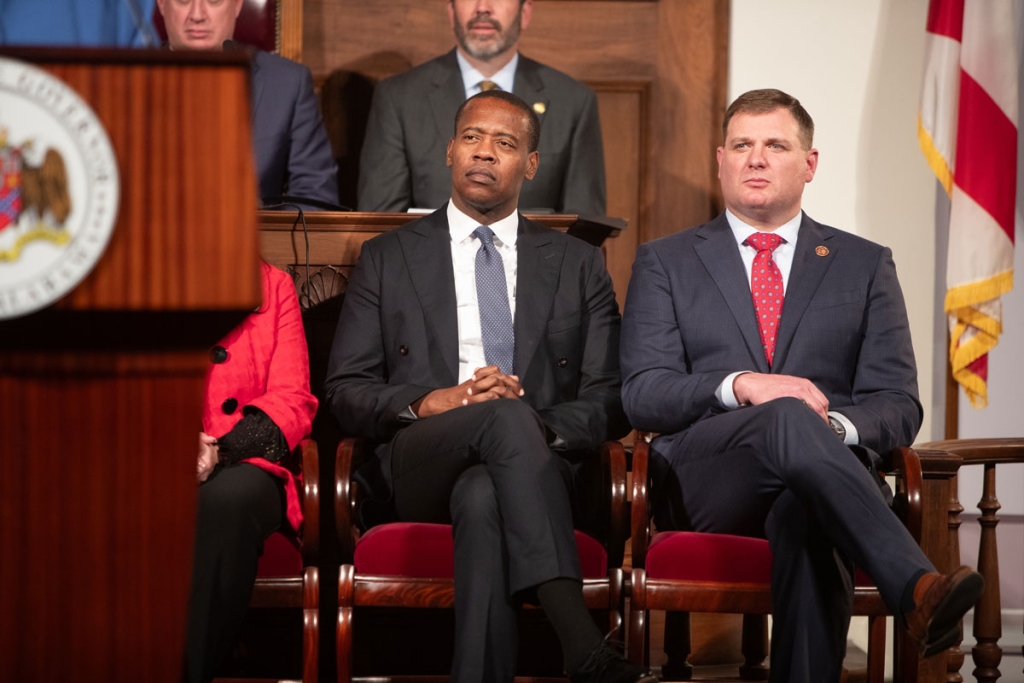The Alabama Senate’s Finance and Taxation Education Committee on Wednesday advanced the Education Trust Fund budget and its associated funding bills, setting the stage for a full Senate vote on the largest education budget in state history.
The package, sponsored by Chairman Arthur Orr (R-Decatur), includes appropriations for fiscal year 2026 totaling more than $10 billion across core education services, supplemental needs, capital outlay and reserve initiatives.
The committee gave favorable reports to SB111, SB112, SB113 and SB114, including the main ETF budget, supplemental appropriations and allocations from the Advancement and Technology Fund.
Orr acknowledged the complexity of crafting this year’s education budget given the number of moving parts and competing priorities.
“I would tell the members the budget was a little bit of a challenge with a lot of things going on in the Educational Opportunity Fund and with the supplemental and trying to respect the split,” he said during the meeting.
SB112, the primary ETF budget bill, funds public education from pre-K through postsecondary institutions. Major appropriations include $4.79 billion for the Foundation Program for K-12 public schools, $478 million for student transportation, $621 million for the Alabama Community College System, $213 million for the Department of Early Childhood Education and more than $71 million to the Department of Commerce for workforce development.
SB113 provides a $524 million supplemental appropriation for the current fiscal year. That includes $100 million for school bus fleet renewal, $50 million for school safety initiatives, $10 million to support struggling readers in middle grades and $50 million for the CHOOSE Act Fund, which supports education savings accounts.
SB111 allocates $133 million from the Education Opportunities Reserve Fund for targeted programs, including $100 million to the State Department of Education, weighted for at-risk and special education students and rural districts.
The bill also supports the implementation of the RAISE Act, a multi-year initiative focused on student-weighted funding to more equitably distribute state dollars based on student needs that also passed in committee. Legislators noted that $375 million from the Opportunity Fund will continue to support RAISE Act programs and priorities through fiscal year 2026.
RELATED: Alabama lawmakers weigh future of overtime tax exemption as deadline nears
The bill also provides $18 million to the Department of Workforce for partnerships with higher education and $15 million to major research institutions, including UAB and Auburn University.
SB114 draws from the Advancement and Technology Fund to make a record $1.25 billion in one-time appropriations. That includes $342 million for higher education institutions and $907 million for K-12 capital needs. A new $100 million matching grant for career tech center upgrades was created through a reallocation from the K-12 portion. The funds will be administered by the State Department of Education.
The budget package now heads to the full Senate for debate and is expected to be a central focus in the coming weeks as lawmakers finalize education funding priorities before the end of the session. That debate will likely include continued discussion of the RAISE Act and its potential to fundamentally reshape how Alabama funds K-12 education by prioritizing student-weighted allocations over traditional district-based formulas.
Wednesday is day twenty of the 2025 legislative session. After a busy committee day, both the Alabama House and Senate convened and adopted substantial special order calendars.
Grace Heim is a state and political reporter for Yellowhammer News. You can follow her on X @graceeheim or email her at [email protected].













